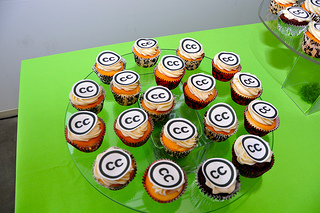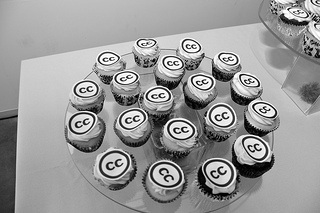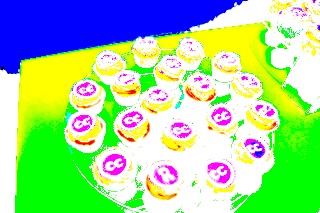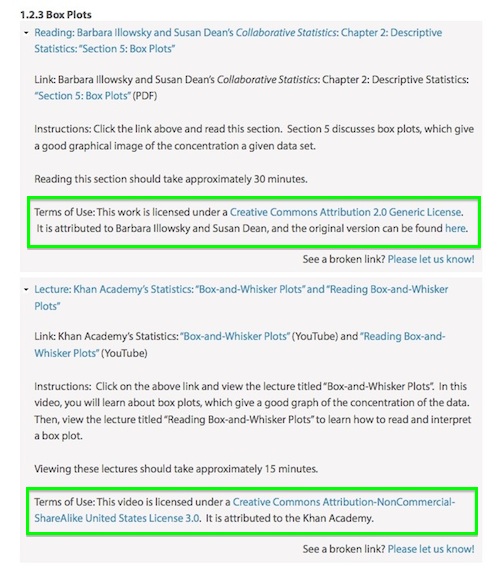Best practices for attribution
You can use CC-licensed materials as long as you follow the license conditions. One condition of all CC licenses is attribution. Here are some good (and not so good) examples of attribution. Note: If you want to learn how to mark your own material with a CC license gohere.
Contents
- 1Examples of attribution
- 1.1This is an ideal attribution
- 1.2This is a pretty good attribution
- 1.3This is an incorrect attribution
- 1.4This is a good attribution for material you modified slightly
- 1.5This is a good attribution for material from which you created a derivative work
- 1.6This is a good attribution for material from multiple sources
- 2Title, Author, Source, License
- 3Attribution in specific media
- 4If you want to get Technical
- 5Other guides to attribution
Examples of attribution
Here is a photo. Following it are some examples of how people might attribute it.
This is an ideal attribution
Because:
- Title? "Creative Commons 10th Birthday Celebration San Francisco"
- Author? "tvol" - linked to his profile page
- Source? "Creative Commons 10th Birthday Celebration San Francisco" - linked to original Flickr page
- License? "CC BY 2.0" - linked to license deed
This is a pretty good attribution
Because:
- Title? Title is not noted (it should be) but at least the source is linked.
- Author? "tvol"
- Source? "Photo" - linked to original Flickr page
- License? "CC BY" - linked to license deed
This is an incorrect attribution
Because:
- Title? Title is not noted.
- Author? Creative Commons is not the author of this photo.
- Source? No link to original photo.
- License? There is no mention of the license, much less a link to the license. "Creative Commons" is an organization.
This is a good attribution for material you modified slightly
Because:
- Title, Author, Source, and License are all noted
- Modification? "Desaturated from original"
This is a good attribution for material from which you created a derivative work
Because:
- Original Title, Author, Source, and License are all noted
- Derivative? "This work, "90fied", is a derivative of..."
- New author of the derivative work is also noted
Note: If you're at a point where you are licensing derivative works, go toMarking your work with a CC license.
This is a good attribution for material from multiple sources
Because:
- Title? Specific works are named, eg. "Box-and-whisker Plots"
- Author? Different authors noted for the different works.
- Source? Original materials are linked for each work
- License? The different licenses (Creative Commons Attribution for Collaborative Statistics and Creative Commons Attribution-Noncommercial-ShareAlike for the Khan Academy video) are spelled out and linked for each work
- Lastly, it is clear which attribution belongs to which work.
You can visit theSaylor.org Introduction to Statistics course pageto see how they marked it up directly.
Title, Author, Source, License
A good rule of thumb is to use the acronymTASL, which stands forTitle,Author,Source,License.
Title- What is the name of the material?
- If a title was provided for the material, include it. Sometimes a title is not provided; in that case, don't worry about it.
Author- Who owns the material?
- Name the author or authors of the material in question. Sometimes, the licensor may want you to give credit to some other entity, like a company or pseudonym. In rare cases, the licensor may not want to be attributed at all. In all of these cases, just do what they request.
Source- Where can I find it?
- 既然你以某种方式获得了资料,你就知道在哪能找到它。提供材料的来源,这样其他人也可以这样做。由于我们生活在互联网时代,这通常是一个URL或超链接的材料驻留。
License- How can I use it?
-
You are obviously using the material for free thanks to the CC license, so make note of it. Don't just say the material is Creative Commons, because that says nothing about how the material can actually be used. Remember that there are six different CC licenses; which one is the material under? Name and provide a link to it, eg.//www.familygiver.com/licenses/by/4.0/为CC。
- → If the licensor included a license notice with more information, include that as well.
Lastly, is there anything else I should know before I use it?
-
When you accessed the material originally did it come with any copyright notices; a notice that refers to the disclaimer of warranties; or a notice of previous modifications? (That was a mouthful!) Because that kind of legal mumbo jumbo is actually pretty important to potential users of the material. So best practice is to just retain all of that stuff by copying and pasting such notices into your attribution. Don't make it anymore complicated than it is -- just pass on any info you think is important.
- → Regarding modifications: Don't forget to note if you modified the work yourself (example). If you are at the point where you are creating and licensing derivative works (example), seeMarking your work with a CC license.
这些最佳实践基于实际的CC许可要求。注意,标题是所有CC许可3.0或更早版本的要求,4.0版本可选。注意作者、来源、许可并保留任何额外通知是所有CC许可的要求。SeeDevil in the details.
Devil in the details
If you have any doubts or questions, you can read the complete attribution requirements which are spelled out in detail in the legal code of every CC license, eg.//www.familygiver.com/licenses/by/4.0/legalcode#s3a. Thischart compares the detailed requirements across all versions of CC licenses.
Don't make it too complicated
The license tells you to be reasonable:
- You may satisfy the conditions in (1) and (2) above in anyreasonable mannerbased on the medium, means and context in which the Licensed Material is used. For example, it may be reasonable to satisfy some or all of the conditions by retaining a copyright notice, or by providing a URI or hyperlink associated with the Licensed Material, if the copyright notice or webpage includes some or all of the required information.
没有一条正确的路;只要确保你的归类是合理的,并且适合你所使用的媒体。也就是说,您仍然需要以某种方式包含属性要求,即使它只是一个指向包含该信息的关于页面的链接。(More on different mediumsbelow.)
Attribution in specific media
As stated above, best practices for attribution apply as reasonable to the medium you're working with. For media such as offline materials, video, audio, and images, consider:
- 1.Publishing a web page with attribution information.For example, on a webpage featuring your audio recording, provide a credit list of material you used that adheres to best practices above. Doing so allows not only your material, but the materials you attribute, to be found by search engines and other web discovery tools. If possible within the medium, make the Author, Source, and License links the user can follow.
-
Example:
This video features the song"Desaprendere (Treatment)"byfourstones, available under a Creative CommonsAttribution-Noncommerciallicense.
- 2.Mentioning the credits within the media itself.For example, crediting videos can be a simple list of the materials used with their associated licenses in a screen at the end of a video. For audio, it can be a verbal recitation of credits at the end of the recording.
-
Video example 1:"Science Commons" by Jesse Dylan -see attribution starting at 1:52
Video example 2:"Video Editing and Shot Techniques: Study of jump cuts, match cuts and cutaways " video by New Media Rights -see attribution starting at 3:21
Audio example:大声朗读科里·多克托罗的《魔法王国的落寞》。Mastered by John Taylor Williams -listen to attribution starting at 17:08
If you want to get Technical
If you really want to go there, we have adocument about marking materialsso that they are machine-readable.
Also, several groups are exploring ways to make attribution easier and simultaneously machine-readable for the web. Here are some tools that have been developed:
- Open Attribute- a browser plugin for Firefox and Chrome that grabs the CC license metadata on a web page and turns it into an attribution for you
- Commons Machinery- a suite of plugins for Firefox and open office tools that enables copying and pasting images with the attribution info already attached
Other guides to attribution
- How To Attribute CC Photosposter by foter
- Attributing Creative Commons Material(pdf) - Creative Commons Australia's publication is full of examples with colorful imagery.
- How to attribute works you reuse under a Creative Commons licenseby New Media Rights provides real world examples by different media type
- Library Resources福克斯谷技术学院提供了建议OER归因和引用的例子。他们推荐以下TASL格式:“内容标题”从包含容器标题,版本,由作者©版权日期[替代所有者,如果不同于作者]与许可证[许可证描述的URL]许可。访问在DOI或永久链接或URL。Additional Publisher notes or licensing requirements.



